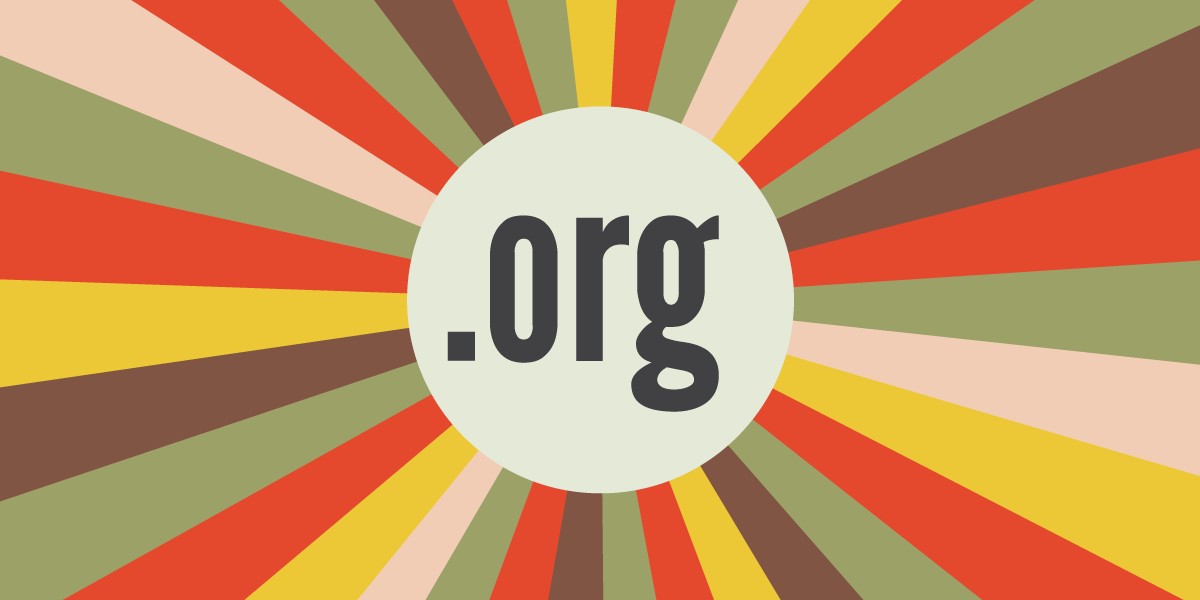Back in the fall of 2019, the private equity firm Ethos Capital announced its plans to buy the Public Interest Registry (PIR) for more than $1 billion.
PIR is owned by the Internet Society and manages the .ORG domain registry, which since 1985 has been used by nonprofits and nongovernmental organizations (NGOs) like the Northwest Progressive Institute (NPI).
Dot org is what is known as top layer domain… the last part of a uniform resource locator (URL), or web address. For example, nwprogressive.org.
PIR is a nonprofit entity that has been managing the registry and setting the prices that owners pay when they register .ORG domains.
After the announcement, many organizations came out in opposition all over the world, arguing that if the Internet Society no longer wanted to manage PIR, it should be handed over to an institution the nonprofit community can trust.
In a letter to the Internet Society from the Electronic Frontier Foundation, an ally of NPI that opposes the sale, it was explained that this move could cause significant harm to nonprofits and NGOs. They argue that without oversight from an appropriate placement, the registry would have the power to make policy changes that would detrimental to .ORG stakeholders, including:
- The power to raise .org registration fees without the approval of the Internet Corporation for Assigned Names and Numbers (ICANN) or the .ORG community. A .ORG price hike would put many cash-strapped NGOs in the difficult position of either paying the increased fees or losing the legitimacy and brand recognition of a .ORG domain.
- The power to develop and implement Rights Protection Mechanisms unilaterally, without consulting the .org community. If such mechanisms are not carefully crafted in collaboration with the NGO community, they risk censoring completely legal nonprofit activities.
- The power to implement processes to suspend domain names based on accusations of “activity contrary to applicable law. ”The .ORG registry should not implement such processes without understanding how state actors frequently target NGOs with allegations of illegal activity.
NPI cosigned EFF’s letter, with NPI’s founder and Executive Director Andrew Villeneuve explaining: “The pending sale is of great concern to NPI because we own a significant number of .org domains. We could be affected by price hikes and bad policies imposed by the proposed new owner.”
Yearly fees for .ORG sites are, on average, between $10 to $20.
Lawmakers in Washington State are also alarmed at the prospect of the .ORG registry being controlled by a profit-driven, private equity firm.
Senior NPI boardmember Gael Tarleton, a state representative from the 36th District and a 2020 candidate for the position of Secretary of State, told me that a free and open internet is the “lifeblood of every community and economy, and every school and health care system in this country.”
“It is offensive,” said Tarleton, “that the Internet, developed by public tax dollars and by the federal government, for the purposes of serving the public research communities and the public good, would fall into the hands of a private equity firm just because [Donald] Trump is in the White House.”
She noted that Washington does have laws that protect digital liberties at the state level, like our groundbreaking net neutrality law, but that there are still thousands of nonprofits registered in the state that could be negatively affected by the proposed sale of the .ORG registry to Ethos Capital.
Tim Berners-Lee, the inventor of the World Wide Web, was among those expressing grave concern and opposition at the time the sale was announced.
So was ICANN’s founding chair Esther Dyson.
The Electronic Frontier Foundation also made the point in their letter opposing the sale, that back in 2002, amid similar talks of selling the .ORG registry, ISOC’s then president and CEO Lynn St. Amour assured the NGOs worldwide that the registry would continue to be accountable to the nonprofit sector.
Erik Brooks, founder and CEO of Ethos Capital, stated in a public blog post that the firm is investing in “the long-term vitality of .ORG and its users” and that “PIR’s partnership with Ethos will create new opportunities for PIR to provide enhanced services and support to the .ORG community.”
He also promised that these enhanced services will be developed “in collaboration with the community.” But last month, ICANN published documents with the names of three directors of Ethos Capital involved in the sale redacted, which only deepened the concerns of nonprofits and NGOs.
The documents also seem to suggest that ICANN had been positioning the registry for sale nearly a year before the official announcement was made.
With so much on the line and a lack of transparency on the part of ICANN, it’s unfortunate we’re not seeing more widespread awareness and opposition.
Tarleton argued the Washington Secretary of State’s office should be forcefully opposing the sale and calling attention to it. “This is the slippery slope of privatization that happens when no one is paying attention,” she warned.
Tarleton plans to continue speaking out against the proposed Ethos takeover.


Hi. Along with Esther, and a number of other volunteers representing non-profits, I serve on the board of the Cooperative Corporation of .ORG Registrants, which was organized as an alternative to the private equity takeover. There’s a lot more continuing to happen on this story, and specific action is needed to prevent the takeover… Non-profits need to understand the consequences of a takeover, particularly as regards communications down-time and third-party sale of constituent personal information and communications metadata, and they need to write to ICANN’s board of directors, who are the ones currently deciding whether to allow Ethos Capital to pay-to-bypass the competitive multistakeholder process that would normally apply here.
Any of all of us are happy to talk with anyone who wants to help. info@ccor.org
Thanks,
‑Bill Woodcock